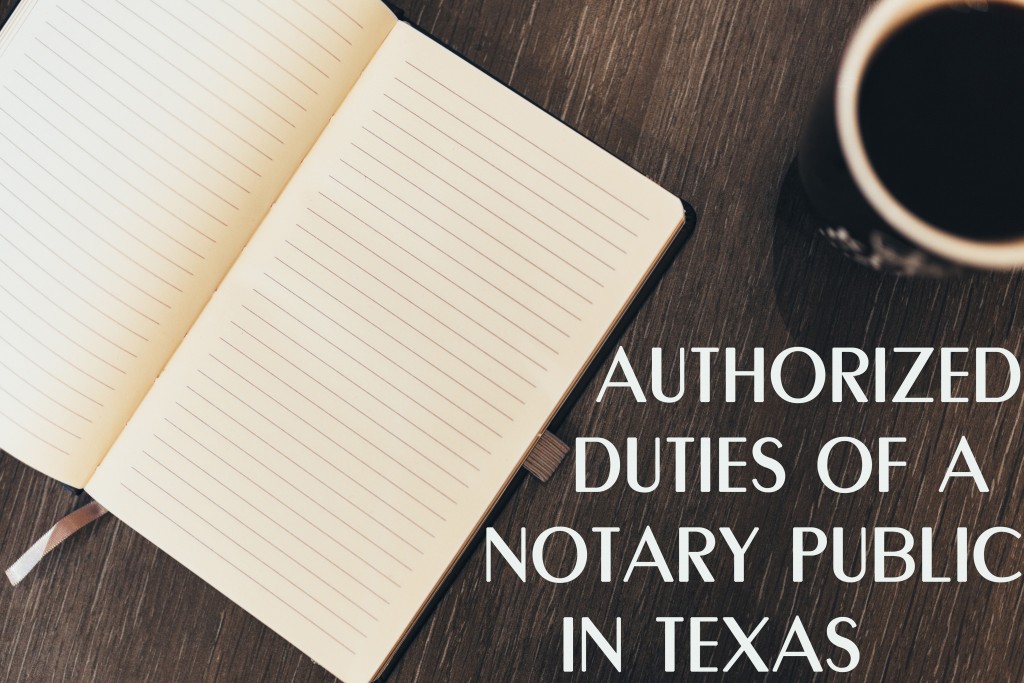
What is a Notary Authorized to do in Texas?
The duties that a notary public is authorized to perform varies from state to state. As a notary public in Texas, you are permitted to execute 5 different notarial acts under your commission. To avoid future issues with liability, it is imperative to know exactly what each of these acts entail.Administer Oaths and Affirmations
Administering an oath involves a person pledging that the contents of a document or a statement are truthful. Oaths are also utilized in oral depositions. Some important things to remember when administering an oath:- Always require the physical presence of the person affirming the truthfulness of the document. Make no exceptions.
- Be sure to witness the signing of the document.
Take Acknowledgments and Proofs
Acknowledgments are simpler than oaths. The notary public’s job in this instance is to merely witness the document being signed and to make certain that the document is being signed voluntarily. For this notarial act, content is not as important. The notary public needs only to ensure that the signer is knowledgeable about what signing the document entails. Some important things to remember when taking acknowledgements:- Scan the document for completeness. Never notarize a document that could potentially be altered post-notarization.
- It is imperative you confirm that the signer is aware of the document’s contents and that they are signing of their own free will.
Make Certified Copies
When making an attested photocopy, your job as a notary public is to ensure and certify that the photocopy is a true copy of the original document. Some important things to remember when making attested photocopies:- Check that the document being photocopied is an original. Never notarize a photocopy of a copy.
- Make certain that the document can legally be made into an attested photocopy. Birth certificates, death certificates, and marriage and divorce records are a few examples of documents that it is illegal to make an attested copy of.
- In Texas, you must keep a photocopy of each document that you certify for your records. It is best to store these papers in a secure location.
Take Depositions
In Texas, a notary has the authority to issue a subpoena for a written deposition. Some important things to remember when taking depositions:- We recommend exercising extreme caution when performing this notarial act.
- Contact the Office of the Secretary of State if you require any assistance.
Protest Instruments
Though all notaries in Texas are authorized to protest instruments, modern banking practices have basically eliminated the need for notaries to perform this act. Finally, here are some important things to remember when performing any of your authorized duties as a notary public:- You are responsible for what you notarize. This responsibility does not disappear if your commission expires. The best way to avoid future liability is to meticulously record the details of every notarization in a record book.
- Never perform notarial acts for family members or for situations in which you have some form of invested interest. If you have something to gain from the notarization, no matter how small, it compromises your ability to remain unbiased.
- Remember that you can always decline a notarization if you feel pressured or uncomfortable in performing the act. If something feels wrong to you about the situation, remove yourself from it.
